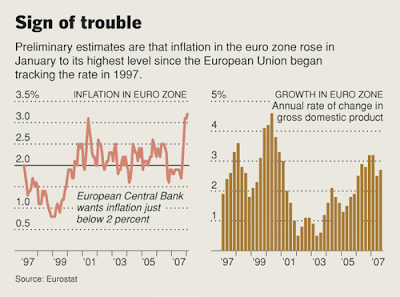How he could have saved Bear Sterns "Buffett says he 'got a call' about Bear Stearns, but bailing out the investment bank with only two days for due diligence, he says, 'took some guts that I didn't want to match.'" - And why he didn't. Quick lesson on the CDOs - "I read a few prospectuses for residential-mortgage-backed securities - mortgages, thousands of mortgages backing them, and then those all tranched into maybe 30 slices. You create a CDO by taking one of the lower tranches of that one and 50 others like it. Now if you're going to understand that CDO, you've got 50-times-300 pages to read, it's 15,000. If you take one of the lower tranches of the CDO and take 50 of those and create a CDO squared, you're now up to 750,000 pages to read to understand one security. I mean, it can't be done. When you start buying tranches of other instruments, nobody knows what the hell they're doing. It's ridiculous. And of course,...




